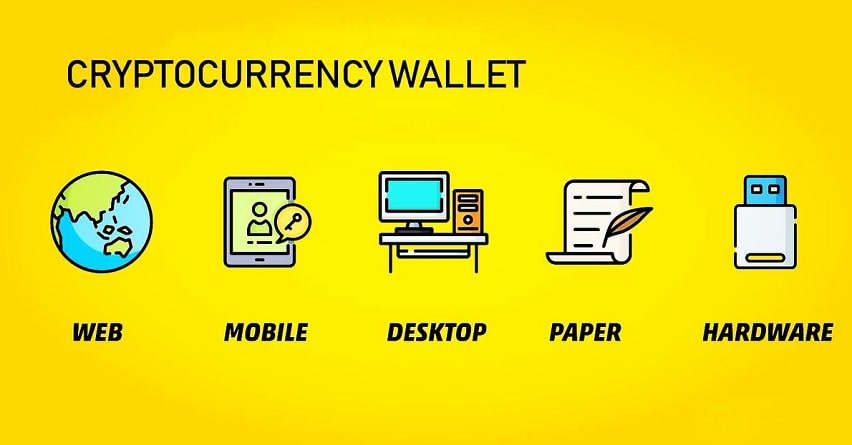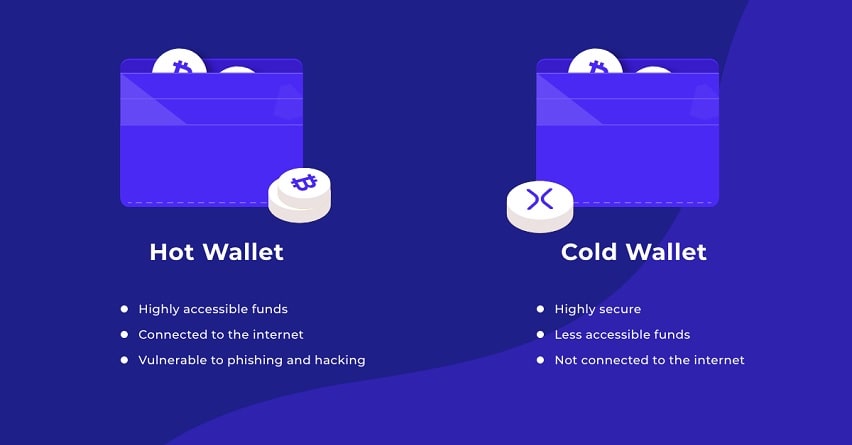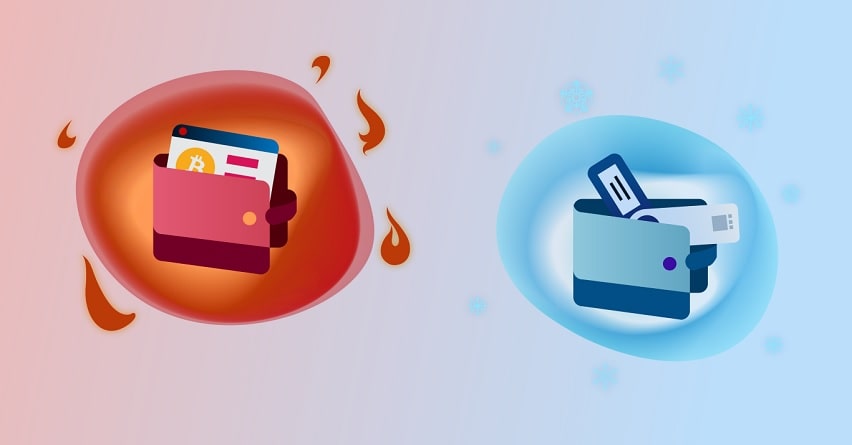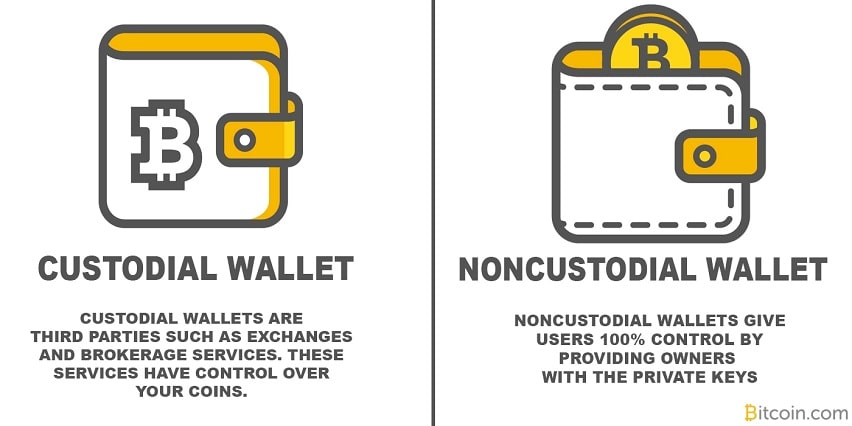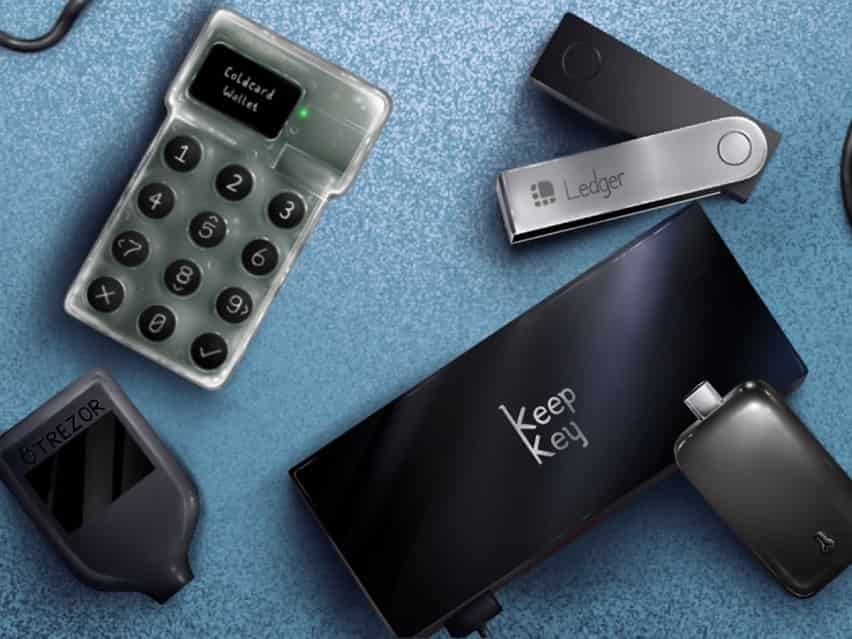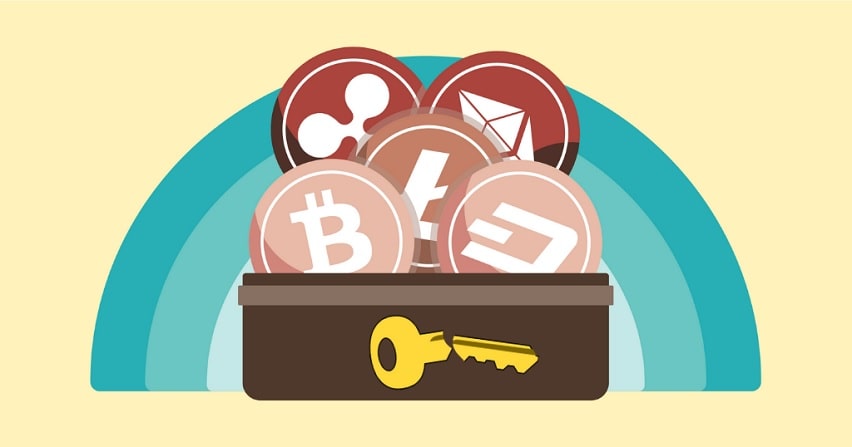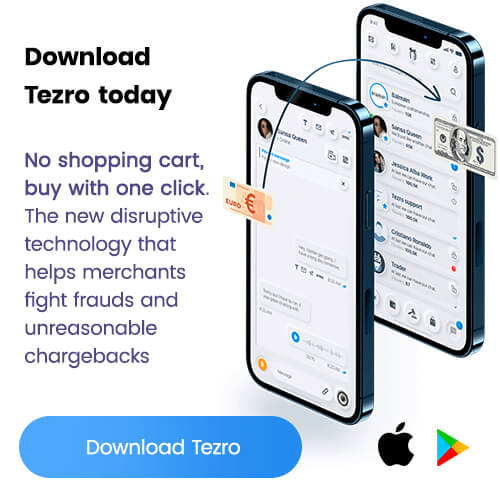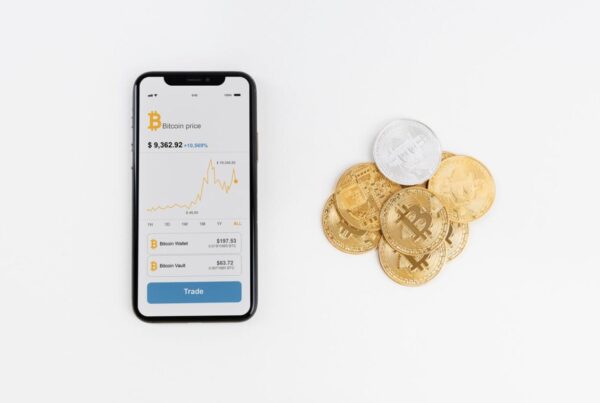If you want to know how to get a crypto wallet, you have probably heard the buzz around cryptocurrency and want to get involved. Maybe you have seen people talking about Bitcoin or Ethereum and you want to know how to purchase them. Or, maybe you understand the basics of cryptocurrency but don’t know how to store it securely.
Either way, you need a crypto wallet that suits your needs. In this article, we will talk about how to get different types of crypto wallets and which one might be right for you.
How to Choose and Get a Crypto Wallet
There are different types of crypto wallets:
Hot wallets
Hot wallets are connected to the internet. They are convenient to use but less secure because they are more vulnerable to hacking.
Cold wallets
Cold wallets are not connected to the internet and are considered more secure. These are good for the long-term storage of cryptocurrency. However, they can be difficult to use for everyday transactions.
Paper wallets
Paper wallets are a type of cold wallet. They are considered even more secure than cold wallets because they are not vulnerable to hacking. However, paper wallets can be difficult to set up and use. If you lose your paper wallet, you may lose your cryptocurrency.
Hardware wallets
Hardware wallets are a type of cold wallet. They are physical devices that store your cryptocurrency offline. Hardware wallets are considered the most secure type of wallet because they are not vulnerable to hacking. However, they can be expensive and difficult to set up.
Mobile Wallets
Mobile wallets are perhaps the most convenient wallets available. All you need is a smartphone with an internet connection and you’re ready to go. The vast majority of mobile wallets are free to download and use. The downside to mobile wallets is that they are generally less secure than other types of wallets. This is because they are often connected to the internet and are therefore more susceptible to hacking.
Desktop Wallets
Desktop crypto wallets are installed on a laptop or desktop computer. They offer a high degree of security, since they are not connected to the internet 24/7. However, they can be a bit more difficult to use than mobile wallets. This is because you need to download and install the software on your computer.
In the end, all these crypto wallets fall under three major categories:
- Hardware wallets
- Non-Custodial Wallets
- Hosted Wallets
We will look at this in detail later in the article. Keep reading!
Choosing A Wallet
The type of wallet you choose will depend on an array of factors, including:
- Transactions to be performed: Some wallets are better suited for holding large amounts of cryptocurrency while others are geared towards facilitating regular transactions.
- The level of security you require: Some wallets offer greater security features than others. For example, hardware wallets tend to be more secure than software wallets as they store your private keys offline.
- Your level of technical expertise: If you’re not too familiar with the ins and outs of cryptocurrency, you may want to opt for a simple software wallet that’s easy to use.
- Company reputation: When choosing any type of wallet, it’s always important to research the company behind it. Be sure to read reviews and look into a company’s customer service before making your decision.
- Technologies used: Different wallets use different technologies. From security features to the user interface, it’s important to find a wallet that uses cutting-edge technology that not only meets your needs but also anticipates your future needs.
How to get a Hosted Crypto Wallet
Hosted wallets are provided by a third-party service. This means that the service will store your private keys on their servers. They will also manage your account and allow you to buy, sell, and store cryptocurrencies.
The main advantage of hosted wallets is that they are very convenient to use. This is because you don’t have to worry about managing your private keys or seed phrases. The hosting company will take care of all that for you.
The downside is that hosted wallets are less secure than other types of wallets. This is because the hosting company will have access to your private keys. If they are hacked, your funds could be at risk.
How to Get a Hosted Wallet
There are many different hosted wallet providers to choose from. Some of the most popular ones include Coinbase, Blockchain.com, and BitGo.
To get started with a hosted wallet, you will need to do the following:
- Create an account with a wallet provider
- Deposit some funds into your account
- Start buying, selling, and storing cryptocurrencies!
Below are some of the best hosted wallets:
1. Coinbase
Coinbase is one of the most popular cryptocurrency exchanges and wallets in the world. They offer a user-friendly platform that is perfect for beginners. This is because Coinbase is very easy to use. You can buy, sell, and store cryptocurrencies all in one place. They also offer a mobile app that makes it even easier to use their service.
Coinbase is one of the most secure wallets available. This is because they keep 95% of their digital assets in offline storage.
2. BlockChain.com
With over 68 million users worldwide, Blockchain.com is the most popular cryptocurrency wallet. This platform provides users with a variety of features, including the ability to buy, sell, and store cryptocurrencies.
As one of the oldest and most established wallets in the space, Blockchain.com is a great choice for those looking for a reliable and user-friendly option. It uses a multi-layer security system to ensure the safety of user funds.
3. BitMex
BitMex is a cryptocurrency trading platform that also offers a wallet service. This platform is aimed at more experienced traders and provides features such as margin trading and advanced charting tools.
In terms of security, BitMex uses a multi-signature system to protect user funds. This means that multiple people must approve each transaction before it is processed.
4. Binance
is one of the most popular cryptocurrency exchanges out there. They offer a user-friendly platform with a variety of features for both beginners and experienced traders.
One thing that makes Binance so great is that they have its own coin, Binance Coin (BNB). BNB can be used to pay for fees on the Binance exchange, making it a convenient, all-in-one platform for those looking to invest in cryptocurrencies.
In terms of security, Binance offers a number of different features to keep user funds safe. These include two-factor authentication, withdrawal limits, and whitelisting.
Non-Custodial
These wallets give you full control over your private keys. This means that you are the only one who has access to your funds. Even the wallet provider cannot access your funds.
Since there are no intermediaries, you can use non-custodial wallets to buy, sell, and store cryptocurrencies. You also have full control over your keys and seed phrases, meaning that even if the wallet provider is hacked, your funds will remain safe.
How to Get a Non-Custodial Wallet for Cryptocurrency
The way you get a non-custodial wallet depends on the platform you’re using. However, below is a step-by-step guide on how to get a digital wallet for cryptocurrency:
Follow instructions and create an account on the platform
- Get a wallet
- If there is a mobile app, download it, install it, and follow the instructions to sign up or login
- Back up your seed phrase in a safe place
- Add cryptocurrency to your wallet by buying it on an exchange or from another user
Best Non-Custodial Crypto Wallets
1. Tezro
We cannot talk about the best non-custodial wallets without mentioning Tezro. This wallet is one of the most user-friendly and intuitive in the space. It also offers a great mobile app that makes it easy to buy, sell, and store cryptocurrencies.
What makes Tezro unique is its financial instant messenger (FIM) feature. This allows you to chat with other Tezro users and make payments directly from the app.
It is secured by military-grade encryption and offers a host of other features such as two-factor authentication, SSL encryption, multisig support, and more.
2. Exodus
Exodus is another great choice for those looking for a non-custodial wallet. It is a desktop-based wallet that is available for Windows, Mac, and Linux.
It has an easy-to-use interface and supports a wide range of cryptocurrencies. Exodus also offers a mobile app that allows you to access your funds on the go.
It is a secure wallet that uses two-factor authentication and has built-in ShapeShift support for exchanging cryptocurrencies.
3. Coinomi
Coinomi is a popular mobile wallet that supports over 1700 different cryptocurrencies across 125 blockchains.
Coinomi is a Hierarchical Deterministic (HD) wallet, which means that your private keys are generated and stored in a secure manner. It also uses two-factor authentication for added security.
How to Get a Hardware Blockchain Wallet
These are physical devices that are designed to store your private keys offline. They are not only secure but also very convenient to use. They work like a USB drive and can be plugged into any computer.
Below is a step-by-step guide on how to get a wallet for cryptocurrency:
- Research different hardware wallets and compare them. Decide which one you want to buy.
- Go to the official website of the wallet you have chosen.
- Follow the instructions on how to set up your device.
- Once you have set up your device, transfer your cryptocurrency from the exchange or online wallet into your new hardware wallet.
Now you have a hardware wallet, congrats! This is one of the safest ways to store your cryptocurrency. Remember to always keep your recovery phrase safe and secure in case you lose your device.
Hardware wallets are not free but they are worth the investment if you are holding a large amount of cryptocurrency.
Best Hardware Wallets
1. Ledger Nano S
Ledger Nano S is a popular hardware wallet that supports a wide range of cryptocurrencies. This wallet uses a secure chip that stores your private keys offline. It also has a built-in display so you can double-check and confirm each transaction.
This device uses a proprietary operating system that is designed specifically for Ledger hardware wallets. This makes it one of the most secure options available.
2. Trezor Model T
Trezor is another popular hardware wallet that supports a wide range of cryptocurrencies. It has open-source firmware and offers some advanced features such as a touchscreen interface, support for multiple languages, and an SD card slot.
3. D’CENT Biometric Wallet
Biometric security is one of the hottest trends in the crypto world right now. D’CENT Biometric Wallet offers one of the most advanced solutions on the market. Users can store their private keys on the device and use fingerprint or iris recognition to access their accounts.
This device has an OLED display, which allows users to double-check their transaction details before confirming them.
How to Set Up and Use Your Crypto Wallet
Now that you know how to get a crypto wallet, let’s take a look at how to set it up and use it.
Setting up a crypto wallet depends on the type of wallet you’re using. For example, if you’re using a software wallet, all you need to do is download the app and create an account.
If you’re using a hardware wallet like Trezor or Ledger, you’ll need to connect your device to your computer and set up an account.
Once you have your wallet set up, you can start using it to store, send, and receive cryptocurrencies.
To send and receive cryptocurrencies, you need to have the public address of the person you’re sending or receiving from. This is a long string of numbers and letters that looks something like this:
19GQyhTfTYMbVpmUvkF
Some of the best wallets to use for storing financial crypto assets are Tezro, Exodus, and Coinomi. These wallets are not only secure, but they’re also easy to use. You can also consider hardware wallets, but if you are a newbie, they can be a little tricky to set up.
How to Keep Your Crypto Wallet Safe
Below are a few tips to help you keep your crypto wallet safe:
- Use a strong password: A strong password is one that is at least eight characters long and includes a mix of uppercase and lowercase letters, numbers, and symbols.
- Keep your software up to date: Crypto wallets are constantly evolving and adding new features and security updates. It’s important to keep your wallet up to date so you can benefit from the latest improvements.
- Use a wallet that supports two-factor authentication: Two-factor authentication is an extra layer of security that requires you to enter a code from your phone or another device in addition to your password.
- Enable all the security features your wallet offers: Most wallets offer a variety of security features, such as two-factor authentication, fingerprint recognition, and more. Make sure you enable all the security features your wallet offers.
FAQs About Getting a Cryptocurrency Wallet
How Do I Get a Free Crypto Wallet?
To get a free crypto wallet sign up for an account on a cryptocurrency exchange, such as Tezro, Coinbase or Binance. These exchanges usually have wallets that you can use to store your cryptocurrencies. You can also download free software wallets, such as Exodus or Coinomi, from the App Store or Google Play.
What is the Best Crypto Wallet for Beginners?
Overall, Tezro is the best crypto wallet for beginners. It’s easy to use and has a friendly interface. Its intuitive design makes it easy to navigate and find the features you need.
Does My Crypto Still Grow in a Wallet?
Yes! Your crypto grows or decreases in value just like it would if it was in an exchange. The only difference is that when it’s in a wallet, it’s not susceptible to hacks since exchanges are constantly being targeted by hackers.
Can I Change My Crypto Wallet?
Yes, you can absolutely change your crypto wallet if you want to. If you’re not happy with the features or security of your current wallet, there’s no reason why you can’t switch to a different one. Just make sure you send all your cryptocurrencies to your new wallet before you delete your old one.
I am text block. Click edit button to change this text. Lorem ipsum dolor sit amet, consectetur adipiscing elit. Ut elit tellus, luctus nec ullamcorper mattis, pulvinar dapibus leo.
Key Takeaways
- There are a lot of different crypto wallets to choose from.
- You can have a cold wallet, that you can carry around, or have a hot wallet that is accessible from your phone or desktop.
- Security should always be a priority so make sure you investigate their features before putting your assets into one.
- Diversify your crypto through multiple wallets, so you keep them even safer.
Final Thoughts
Hopefully, this article has helped you understand how to get a crypto wallet and how to keep it safe. Ensure you choose a wallet that meets your needs, personal preferences, and security concerns.
Remember you can always trust Tezro app, not only to save your crypto assets but to keep your conservations private and completely encrypted. Download it today!

